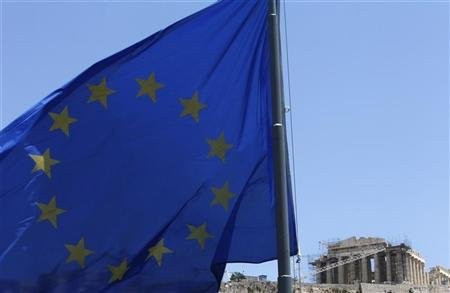Eurozone May Not Exit Recession until Third Quarter

The Markit Eurozone PMI Composite Output Index fell to 47.3 in February from 48.6 the previous month signalling a steepening economic downturn.
With a reading of less than 50 indicating a contraction in activity, Rob Dobson Chief Economist at Markit said the data suggests that the Eurozone may not exit the recession until the third quarter this year.
The February services PMI dipped to a three-month low of 47.3 versus a January level of 48.6, while the manufacturing PMI for the region edged down to 47.8 from 47.9.
Economists' consensus forecasted a February reading of 48.5.
Business activity has now declined throughout the past year-and-a-half, with the exception of a marginal increase in January last year.
Despite accelerating, the rate of contraction in February remained slower than the post-crisis record seen in October, says Markit, and the average drop in activity in the first quarter so far is less severe than the trend for the fourth quarter of last year.
"A steepening rate of decline in February is a disappointment, and suggests that the eurozone is on course to contract for a fourth consecutive quarter in the first three months of the year. However, despite the fall in the PMI, the first quarter decline in the economy should be less severe than the 0.6 percent drop in GDP seen in the final quarter of 2012, with a contraction of 0.2-0.3 percent looking likely," says Chris Williamson, Chief Economist at Markit.
"Digging into the data shows increasing schisms within the eurozone. National divergences between France and Germany have widened so far this year to the worst seen since the survey began in 1998. Germany is on course to grow in the first quarter, recovering from the 0.6% GDP fall seen in the fourth quarter, possibly expanding by as much as 0.4%. In contrast, Frances's downturn is likely to deepen, bringing the euro area's second-largest member more in line with the periphery than with the now solitary-looking German 'core'," he adds.
© Copyright IBTimes 2025. All rights reserved.






















